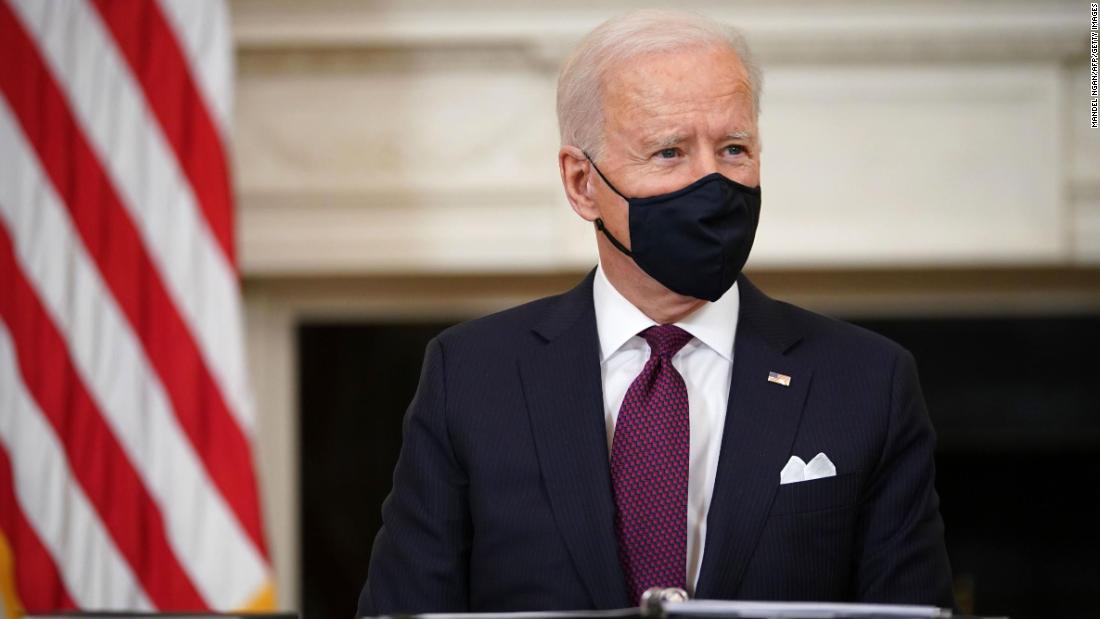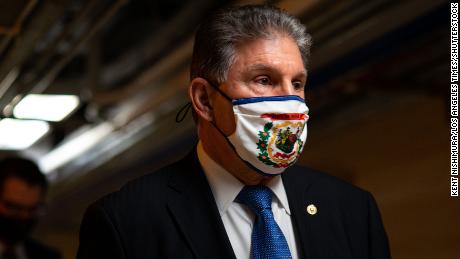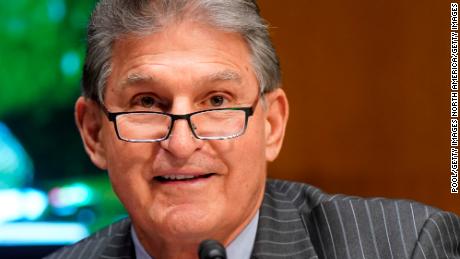With relief in sight, Biden asks for faith in US democracy
Assuming the House passes it — likely also with a slim Democratic majority — the bill then goes to Biden’s desk for his signature.
But it is a signal that “help is on the way,” he said from the White House Saturday after the Senate passed its version of the bill, rattling off the legislation’s attributes.
“This democracy can still work,” Biden said.
Help for Americans hurt by the pandemic
Democrats trying to address income inequality and a pandemic that has disproportionately hurt the poor and people of color can say they acted to help.
While previous Covid relief packages during the Trump administration were bipartisan, Republicans — now out of power — united to oppose this package, arguing it was too much and too expensive. Democrats now own the federal Covid response, and they’ll get the praise for what works and the blame for what doesn’t.
Meanwhile, there is good news about the pandemic as more and more Americans get vaccines and infection rates drop, with optimism the country could be back to some level of normalcy this summer. A strong February jobs report added to the warnings of some economists that the package was too big and could lead to inflation.
But Democrats, pointing to the number of small businesses shuttered during pandemic restrictions and the millions of Americans still out of work, disagreed.
It’s up to the House now
House Democrats will have to stomach what Senate Democrats sent them if they want to pass something into law.
Senators voted on a strict party line to pass the bill, which was a close call for Democrats in an evenly divided chamber. Now that it’s headed back to the House, progressives in the party will grouse at changes Senate Democrats made to shrink the number of Americans getting stimulus checks and cut supplemental unemployment benefits to $300 instead of the $400 endorsed by the House.
But the changes to the House bill were necessary to get support in the Senate from moderate Democrats, like Sen. Joe Manchin of West Virginia, and allowed Democrats to pass the bill with a narrow majority.
Biden defended the changes at the White House Saturday, telling reporters they didn’t alter the “fundamental essence of the bill.”
Senate Majority Leader Chuck Schumer noted every Democrat from Sen. Bernie Sanders, the democratic socialist from Vermont, to Manchin, the moderate from West Virginia, signed on to the bill.
“I am so proud of my caucus. I love each one of them. They are just so great. And you know what unites our caucus? Everyone knows, especially with 50 votes, we all have to pull together. Everyone knows.”
“Unity. Unity. Unity. That’s how we got this done,” the New York Democrat said later, beaming.
Democrats will take credit
But then, on the eve of the bill’s passage, Manchin balked at the generous extension of unemployment benefits and, with the all or nothing confidence of a person who knows just how valuable his 50th vote is, made demands that his colleagues had to oblige.
Passing the bill — even one that falls short of liberal expectations — is a feat in Washington when Republicans were set against it. Now Democrats, who want the government to put a shot in the arm of the economy and provide a safety net for people hurt by the pandemic, will take full credit.
Republicans argued the process and the product were both too partisan, which was proven by their unanimous opposition.
“I think it is a very strong message that this was — as we suggested all along — a very partisan process and a product that reflects a rushed, hurried attempt to try to get $2 trillion out the door to satisfy one of the President’s campaign promises,” said Sen. John Thune of South Dakota, the No. 2 Senate Republican, after the vote.
Democrats will argue voters and Americans will support the results, regardless of the process.
“This is a bipartisan package by any measurement because the public overwhelmingly, both parties wanted it,” said Ohio Democrat Sen. Sherrod Brown, who spoke to CNN’s Fredricka Whitfield after the vote and said most Americans won’t care that it took dramatic negotiations and an all-nighter for Democrats to turn back Republican amendments and get the bill passed.
“The public cares about what we did, what these checks will mean, what it will mean to schools, what it will mean to health care,” he said, rattling off elements of the bill.
Democrats will now try to make sure voters know they accomplished something despite Republican opposition.
Still searching for Republican partners
While their hands will be full keeping Democrats united, both Schumer and Biden suggested this accomplishment by Democrats could show Republicans they need to play ball in the future. Next up could be an infrastructure proposal that could, theoretically, draw bipartisan support.
“There’s a lot of Republicans that came very close. They’ve got a lot of pressure on them. I still haven’t given up on getting their support,” Biden said.
He’ll need them if he wants more victories like this one. While Democrats exploited the budget process for this Covid relief bill, and passed it with 50 votes, that option likely won’t help them deliver other policy priorities, like election and police reform. The House passed sweeping measures to address both of those issues last week, but Republicans are sure to block them and most legislation requires 60 votes to break a filibuster under Senate rules.
“His preference is not to end the filibuster. He wants to work with Republicans, to work with independents,” she told Tapper on “State of the Union.”
“He believes that, you know, we are stronger when we build a broad coalition of support.”
This story has been updated with additional comments.
![]()






